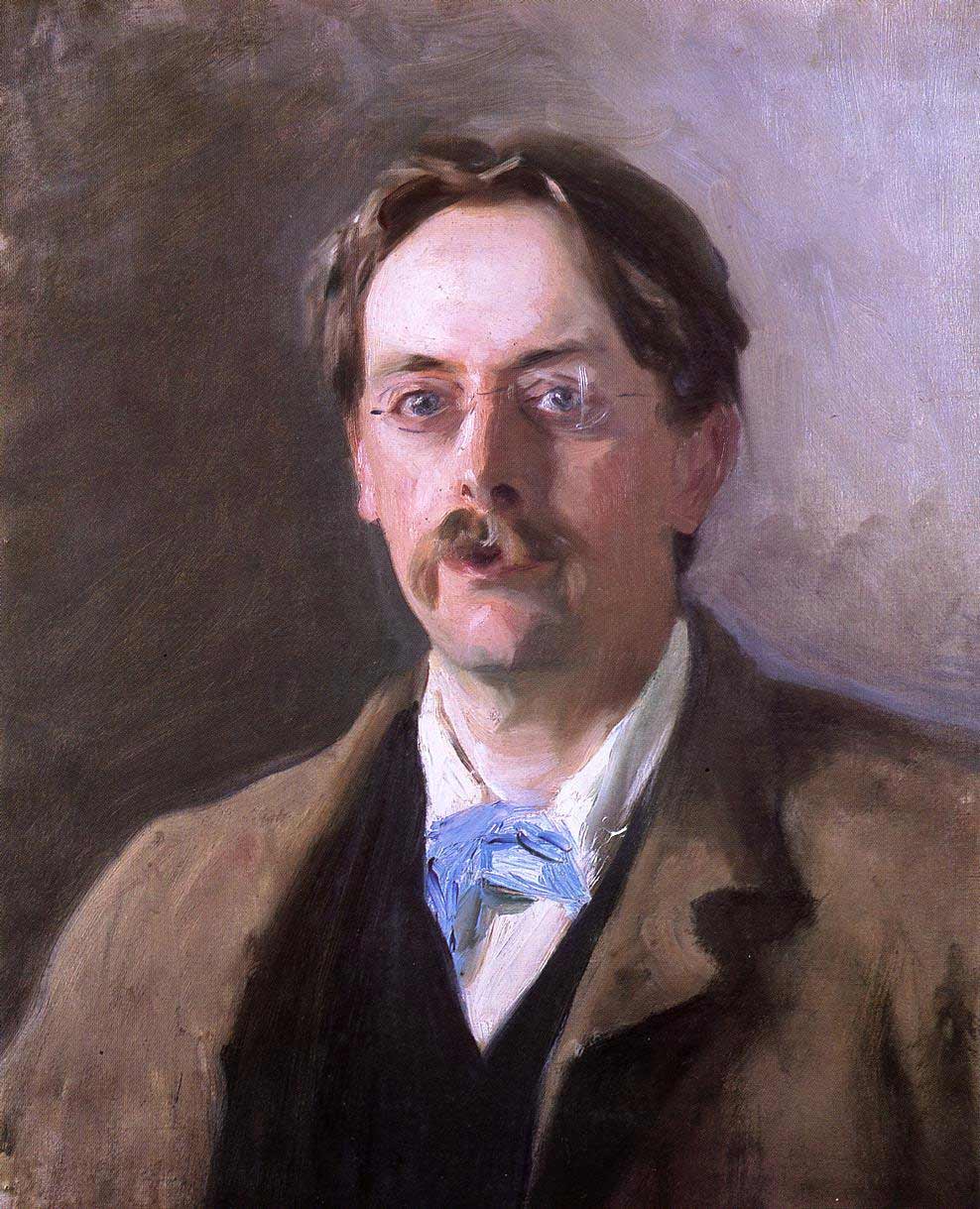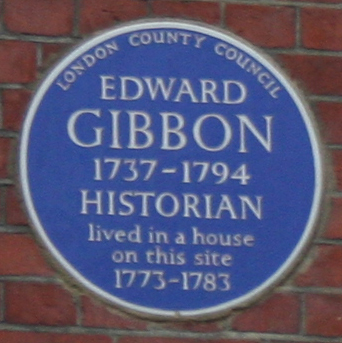|
A. O. J. Cockshut
Anthony Oliver John Cockshut (1927 – 5 November 2021), published as A. O. J. Cockshut, was a British academic and writer. He wrote extensively about nineteenth-century English literature and also published books about the history of religious thought. Born in 1927, Cockshut attended Winchester College, where he played cricket. He then studied at the University of Oxford, where he was awarded an MA and where he was A. C. Bradley Fellow at Balliol College from 1950 to 1954. He met his wife, author Gillian Avery, in 1951 when they were both in Oxford. They married in 1952 at the Church of SS Gregory and Augustine in North Oxford. Two years later, they moved to Manchester, where Cockshut taught at Manchester Grammar School. Their daughter was born in 1957. From 1965 to 1994, Cockshut was All Souls G. M. Young Lecturer in English Literature at Oxford University (a position not associated with a fellowship at All Souls College). He was also a fellow of Hertford Colleg ... [...More Info...] [...Related Items...] OR: [Wikipedia] [Google] [Baidu] |
Winchester College
Winchester College is an English Public school (United Kingdom), public school (a long-established fee-charging boarding school for pupils aged 13–18) with some provision for day school, day attendees, in Winchester, Hampshire, England. It was founded by William of Wykeham in 1382 as a feeder school for New College, Oxford, and has existed in its present location ever since. It is the oldest of the nine schools considered by the Clarendon Commission. The school has begun a transition to become co-educational, and has accepted male and female day pupils from September 2022, having previously been a Single-sex education, boys' boarding school for over 600 years. The school was founded to provide an education for 70 scholars. Gradually numbers rose, a choir of 16 "quiristers" being added alongside paying pupils known as "commoners". Numbers expanded greatly in the 1860s with the addition of ten boarding houses. The scholars continue to live in the school's medieval buildings, whi ... [...More Info...] [...Related Items...] OR: [Wikipedia] [Google] [Baidu] |
Stephen Constantine
Stephen Constantine (born 16 October 1962) is an English professional football coach and former player who is the manager of the Pakistan national football team. Early and personal life Constantine was born on 16 October 1962 in London. He is of Greek-Cypriot descent. He is a fan of English club Arsenal. Constantine is married and has three daughters; his family were living in Cyprus while he was coaching in Sudan. Playing career Constantine played in the United States for the Pennsylvania Stoners and the New York Pancyprian-Freedoms. He retired from playing at the age of 26, following a serious knee injury. Coaching career After retiring from playing, Constantine spent his early coaching career in the United States and Cyprus. Nepal Constantine coached the Nepal national team between 1999 and 2001. He led the national side to the runners-up position at the 1999 South Asian Games. The next year, he was awarded the Order of Gorkha Dakshina Bahu award by the country's K ... [...More Info...] [...Related Items...] OR: [Wikipedia] [Google] [Baidu] |
British Academics Of English Literature
British may refer to: Peoples, culture, and language * British people, nationals or natives of the United Kingdom, British Overseas Territories and Crown Dependencies. * British national identity, the characteristics of British people and culture * British English, the English language as spoken and written in United Kingdom of Great Britain and Northern Ireland and, more broadly, throughout the British Isles * Celtic Britons, an ancient ethno-linguistic group * Brittonic languages, a branch of the Insular Celtic language family (formerly called British) ** Common Brittonic, an ancient language Other uses *People or things associated with: ** Great Britain, an island ** British Isles, an island group ** United Kingdom, a sovereign state ** British Empire, a historical global colonial empire ** Kingdom of Great Britain (1707–1800) ** United Kingdom of Great Britain and Ireland (1801–1922) * British Raj, colonial India under the British Empire * British Hong Kong, colonial ... [...More Info...] [...Related Items...] OR: [Wikipedia] [Google] [Baidu] |
Fellows Of Hertford College, Oxford
{{disambiguation ...
Fellows may refer to Fellow, in plural form. Fellows or Fellowes may also refer to: Places *Fellows, California, USA *Fellows, Wisconsin, ghost town, USA Other uses * Fellowes, Inc., manufacturer of workspace products *Fellows, a partner in the firm of English canal carriers, Fellows Morton & Clayton *Fellows (surname) *Mount Fellows, a mountain in Alaska See also *North Fellows Historic District, listed on the National Register of Historic Places in Wapello County, Iowa *Justice Fellows (other) Justice Fellows may refer to: * Grant Fellows (1865–1929), associate justice of the Michigan Supreme Court * Raymond Fellows (1885–1957), associate justice of the Maine Supreme Judicial Court {{disambiguation, tndis ... [...More Info...] [...Related Items...] OR: [Wikipedia] [Google] [Baidu] |
2021 Deaths
This is a list of lists of deaths of notable people, organized by year. New deaths articles are added to their respective month (e.g., Deaths in ) and then linked below. 2025 2024 2023 2022 2021 2020 2019 2018 2017 2016 2015 2014 2013 2012 2011 2010 2009 2008 2007 2006 2005 2004 2003 2002 2001 2000 1999 1998 1997 1996 1995 1994 1993 1992 1991 1990 1989 1988 1987 1986 Earlier years ''Deaths in years earlier than this can usually be found in the main articles of the years.'' See also * Lists of deaths by day * Deaths by year (category) {{DEFAULTSORT:deaths by year ... [...More Info...] [...Related Items...] OR: [Wikipedia] [Google] [Baidu] |
1927 Births
Events January * January 1 – The British Broadcasting ''Company'' becomes the BBC, British Broadcasting ''Corporation'', when its Royal Charter of incorporation takes effect. John Reith, 1st Baron Reith, John Reith becomes the first Director-General. * January 7 ** The first transatlantic telephone call is made ''via radio'' from New York City, United States, to London, United Kingdom. ** The Harlem Globetrotters exhibition basketball team play their first ever road game in Hinckley, Illinois. * January 9 – The Laurier Palace Theatre fire at a movie theatre in Montreal, Quebec, Canada, kills 78 children. * January 10 – Fritz Lang's futuristic film ''Metropolis (1927 film), Metropolis'' is released in Germany. * January 11 – Louis B. Mayer, head of film studio Metro-Goldwyn-Mayer (MGM), announces the creation of the Academy of Motion Picture Arts and Sciences, at a banquet in Los Angeles, California. * January 24 – U.S. Marines United States occ ... [...More Info...] [...Related Items...] OR: [Wikipedia] [Google] [Baidu] |
People Educated At Winchester College
The term "the people" refers to the public or common mass of people of a polity. As such it is a concept of human rights law, international law as well as constitutional law, particularly used for claims of popular sovereignty. In contrast, a people is any plurality of persons considered as a whole. Used in politics and law, the term "a people" refers to the collective or community of an ethnic group or nation. Concepts Legal Chapter One, Article One of the Charter of the United Nations states that "peoples" have the right to self-determination. Though the mere status as peoples and the right to self-determination, as for example in the case of Indigenous peoples (''peoples'', as in all groups of indigenous people, not merely all indigenous persons as in ''indigenous people''), does not automatically provide for independent sovereignty and therefore secession. Indeed, judge Ivor Jennings identified the inherent problems in the right of "peoples" to self-determination, as i ... [...More Info...] [...Related Items...] OR: [Wikipedia] [Google] [Baidu] |
John Ruskin
John Ruskin (8 February 1819 20 January 1900) was an English polymath a writer, lecturer, art historian, art critic, draughtsman and philanthropist of the Victorian era. He wrote on subjects as varied as art, architecture, Critique of political economy, political economy, education, museology, geology, botany, ornithology, literature, history, and myth. Ruskin's writing styles and literary forms were equally varied. He wrote essays and treatises, poetry and lectures, travel guides and manuals, letters and even The King of the Golden River, a fairy tale. He also made detailed sketches and paintings of rocks, plants, birds, landscapes, architectural structures and ornamentation. The elaborate style that characterised his earliest writing on art gave way in time to plainer language designed to communicate his ideas more effectively. In all of his writing, he emphasised the connections between nature, art and society. Ruskin was hugely influential in the latter half of the 19th c ... [...More Info...] [...Related Items...] OR: [Wikipedia] [Google] [Baidu] |
Edmund Gosse
Sir Edmund William Gosse (; 21 September 184916 May 1928) was an English poet, author and critic. He was strictly brought up in a small Protestant sect, the Plymouth Brethren, but broke away sharply from that faith. His account of his childhood in the book ''Father and Son (Gosse book), Father and Son'' has been described as the first psychological biography. His friendship with the sculptor Hamo Thornycroft inspired a successful career as a historian of late-Victorian sculpture. His translations of Henrik Ibsen helped to promote that playwright in England, and he encouraged the careers of Sarojini Naidu, Toru Dutt, W. B. Yeats and James Joyce. He also lectured in English literature at Cambridge University. Early life Gosse was the son of Philip Henry Gosse and Emily Bowes. His father was a naturalist and one of the chief figures among Brethren, his mother was a published poet, author, and leading religious tract writer. Both were deeply committed to a small Protestant sect, kn ... [...More Info...] [...Related Items...] OR: [Wikipedia] [Google] [Baidu] |
Edward Gibbon
Edward Gibbon (; 8 May 173716 January 1794) was an English essayist, historian, and politician. His most important work, ''The History of the Decline and Fall of the Roman Empire'', published in six volumes between 1776 and 1789, is known for the quality and irony of its prose, its use of primary sources, and its polemical Criticism of religion, criticism of organized religion. Early life: 1737–1752 Edward Gibbon was born in 1737, the son of Edward Gibbon (died 1770), Edward and Judith Gibbon, at Lime Grove in the town of Putney, Surrey. He had five brothers and one sister, all of whom died in infancy. His grandfather, also named Edward, had lost his assets as a result of the South Sea Company, South Sea bubble stock-market collapse in 1720 but eventually regained much of his wealth. Gibbon's father thus inherited a substantial estate. His paternal grandmother, Catherine Acton, was granddaughter of Sir Walter Acton, 2nd Baronet. Gibbon described himself as "a puny child, neg ... [...More Info...] [...Related Items...] OR: [Wikipedia] [Google] [Baidu] |





